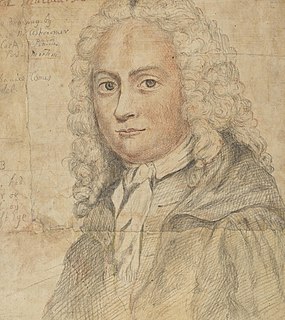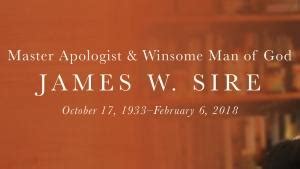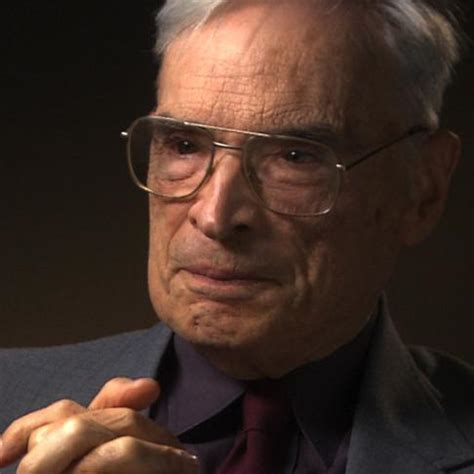A Quote by Colin Maclaurin
It is not therefore the business of philosophy, in our present situation in the universe, to attempt to take in at once, in one view, the whole scheme of nature; but to extend, with great care and circumspection, our knowledge, by just steps, from sensible things, as far as our observations or reasonings from them will carry us, in our enquiries concerning either the greater motions and operations of nature, or her more subtile and hidden works. In this way Sir Isaac Newton proceeded in his discoveries.
Quote Topics
As Far As
Attempt
Business
Care
Carry
Circumspection
Concerning
Discoveries
Either
Extend
Far
Great
Greater
Her
Hidden
His
His Way
Isaac
Just
Knowledge
More
Motions
Nature
Newton
Observations
Once
Operations
Our
Philosophy
Present
Present Situation
Scheme
Sensible
Sir
Situation
Steps
Take
Them
Therefore
Things
Universe
Us
View
Way
Whole
Will
Works
Related Quotes
General observations drawn from particulars are the jewels of knowledge, comprehending great store in a little room; but they are therefore to be made with the greater care and caution, lest, if we take counterfeit for true, our loss and shame be the greater when our stock comes to a severe scrutiny.
Through the fall our nature was stripped of divine illumination and resplendence. But the Logos of God had pity upon our disfigurement, and in His compassion He took our nature upon Himself. On Tabor He manifested it to His elect disciples clothed once again most brilliantly. He showed what we once were and what we shall become through Him in the age to come if we choose to live our present life, as far as possible, in accordance with His ways.
The time will come when diligent research over periods will bring to light things which now lie hidden...Many discoveries are reserved for ages still to come, when memories of us will have been effaced. Our universe is a sorry little affair unless it has something for every age to investigate. nature does not reveal her mysteries once and for all.
Let us, then, take our compass; we are something, and we are not everything. The nature of our existence hides from us the knowledge of first beginnings which are born of the nothing; and the littleness of our being conceals from us the sight of the infinite. Our intellect holds the same position in the world of thought as our body occupies in the expanse of nature.
If human life is in fact ordered by a beneficent being whose knowledge of our real needs and of the way in which they can be satisfied infinitely exceeds our own, we must expect a priori that his operations will often appear to us far from beneficent and far from wise, and that it will be our highest prudence to give him our confidence in spite of this.
A case can certainly be made that Christians bear a major responsibility for our ecological crisis. But the fault is not their biblical but their unbiblical view of nature. Christians have long failed to understand what the Bible really teaches concerning nature and our responsibility for it. For this there is no excuse. Repentance must be our first response. Our second response must then be to right the wrongs of our faulty understanding and act accordingly. We are all responsible to know what can be known of God's will for nature, and we are then responsible to act on that knowledge.
The progress of science has always been the result of a close interplay between our concepts of the universe and our observations on nature. The former can only evolve out of the latter and yet the latter is also conditioned greatly by the former. Thus in our exploration of nature, the interplay between our concepts and our observations may sometimes lead to totally unexpected aspects among already familiar phenomena.
The Pleiadians are very much part of our evolution right now, and I think one of the most common questions people ask, "What is in it for the Pleiadians? Why are they supporting us in this way?" The best answer is that they will benefit from our evolution, just as the whole universe will. As we evolve and come into a deeper understanding of our grandness, our sacred nature, then we become more connected into the universal community as a group, and we need to return to that whole God Consciousness state.
Faith is indeed the energy of our whole universe directed to the highest form of being. Faith gives stability to our view of the universe. By faith we are convinced that our impressions of things without are not dreams or delusions, but, for us, true representations of our environment. By faith we are convinced that the signs of permanence, order, progress, which we observe in nature are true. By faith we are convinced that fellowship is possible with our fellow man and with God.
The cold view to take of our future is that we are therefore headed for extinction in a universe of impersonal chemical, physical, and biological laws. A more productive, certainly more engaging view, is that we have the intelligence to grasp what is happening, the composure not to be intimidated by its complexity, and the courage to take steps that may bear no fruit in our lifetimes.
A successful unification of quantum theory and relativity would necessarily be a theory of the universe as a whole. It would tell us, as Aristotle and Newton did before, what space and time are, what the cosmos is, what things are made of, and what kind of laws those things obey. Such a theory will bring about a radical shift - a revolution - in our understanding of what nature is. It must also have wide repercussions, and will likely bring about, or contribute to, a shift in our understanding of ourselves and our relationship to the rest of the universe.
Religion is part of the human make-up. It's also part of our cultural and intellectual history. Religion was our first attempt at literature, the texts, our first attempt at cosmology, making sense of where we are in the universe, our first attempt at health care, believing in faith healing, our first attempt at philosophy.
I'd go back and hang out with Isaac Newton. I'm torn between do I hang out with him or do I bring him into the present to hang out with me. See, that might be terrifying because his head will just explode once he sees everything that was derived from his discoveries, but I'd spend more time with someone who I think is one of the most brilliant minds our species has ever known.
We have simply arrived too late in the history of the universe to see this primordial simplicity easily... But although the symmetries are hidden from us, we can sense that they are latent in nature, governing everything about us. That's the most exciting idea I know: that nature is much simpler than it looks. Nothing makes me more hopeful that our generation of human beings may actually hold the key to the universe in our hands - that perhaps in our lifetimes we may be able to tell why all of what we see in this immense universe of galaxies and particles is logically inevitable.







































